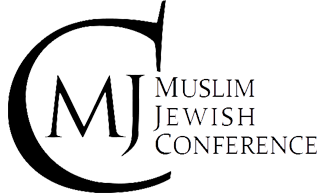First annual MJC 1st – 6th August 2010 – Vienna, Austria

Throughout history, Vienna has been a city in which different cultures and people from different origins meet each other in productive ways. It also bears witness to the darkest ages in Europe’s history, where the power of dialogue ceased functioning as a whole, the first industrialized genocide in the history of mankind: the holocaust. Keeping this in mind, but also due to the fact that the city is home to several UN councils and considered a center-point for international negotiations, Vienna seemed most appropriate for hosting our first MJC, not only in the heart of Europe but also on neutral ground.
The MJC 2010 was held at the Insitute of International Development, at the University of Vienna, Austria, under the official Patronage of the Austrian President, Heinz Fischer. Throughout the five days, 65 participants from all over the world worked together in thematic committees and conclusively produced an official conference declaration, scientifically approaching three main social issues of our time: Combating Islamophobia and Anti-semitism, the role of education and the role of media in Muslim-Jewish relations.
Committee overview:
1. Islamophobia and Anti-Semitism
A lack of knowledge and experience throughout all societies perpetuates both phenomena; Islamophobia and Anti-Semitism. Presumptions and preconceptions offer fertile ground for xenophobic ideas that reach all corners of the world. The alarming power behind these terms, the legal aspects, as well as the role of Europe as a hotspot for both communities will be the basis for discussion in the first committee.
2. Education
It is generally accepted that education is the key to the personal development of individuals and to the health and growth of a country. However, the design, implementation and recipients of education vary strongly. The second committee will focus on the kind of knowledge that is imparted through educational institutions, religious influence and the prospects of an intercultural approach.
3. The Role of Media
The media, regarding its power within today’s societies, has significant influence concerning the increase or decrease of stereotypes and prejudices. The third committee will deal concretely with the role of the media and its effect on intercultural behavior. Its impact on interfaith awareness will be reviewed and analyzed for its potential of bridge-building and peace-building activities.
Guest Speakers:
Walter Ruby, has served as Muslim Jewish Relations Officer for The Foundation for Ethnic Understanding (FFEU) since March 2008. A strong proponent of Muslim-Jewish communication, reconciliation and cooperation, he organized the FFEU-sponsored ‘Weekend of Twinnings of Mosques and Synagogues Around the World’ in November 2008 and 2009 (115 mosques and 115 synagogues in North America and Europe took part in the Weekend of Twinning in 2009 and more are expected to take part in 2010). A reporter before joining FFEU, Ruby served as the New York and United Nations correspondent for the Jerusalem Post and Moscow correspondent for the Jerusalem Post and The Forward. During the 1990’s Ruby was a co-founder of Encounter, a pioneering Internet community composed of Palestinians, Jews, Israelis, Arabs and others, focused on fostering dialogue and joint projects.
Rabbi Marc Raphaël Guedj is the President of the Geneva-based interreligious Foundation ‘Racines Et Sources’ (roots and well-springs), bringing rabbis and imams together to work for peace. He is the former Chief Rabbi of Genevas traditional Jewish congregation. Rabbi Guedj is a member of the Editorial Committee of the World Congress of Imams and Rabbis for Peace, UNESCO.
Faouzi Skali is an anthropologist and ethnologist; professor at the Ecole Normale Supérieure in Fes, Morocco, an author of many publications including “La Voie Soufi” (The Soufi Path) and “Traces de Lumiere” (Traces of Light), Initiator of the Mediterranean Institute for Dialogue Project and Director of the Fes Festival of World Sacred Music. Dr. Skali has coordinated a colloquium to follow the festival called Giving Soul to Globalization, a meeting place for humanitarians and international leaders in the business world to work together to develop more space for spirituality in the working world. He was designated in 2001, by the UN, among seven world personalities having contributed to the Dialogue of Civilisations.
Conference Outcome:
Joint Conference Declaration

